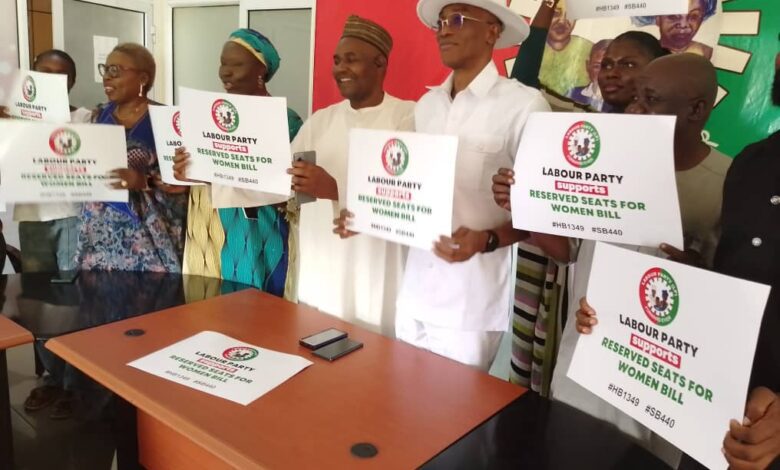Labour Party to Support Bill on Reserved Seats for Women in National Assembly

The National Chairman of the Labour Party (LP), Barrister Julius Abure, has called on government at all levels and political parties to make deliberate efforts to increase women representation in governance.
Abure made the call on Tuesday while receiving members of the House of Representatives Advocacy Group for the Reserved Seats for Women Bill, led by Honourable Khafilat Ogbara, at the party’s National Headquarters in Abuja.
He noted that the Labour Party has consistently championed the inclusion of women in politics and will throw its weight behind the proposed legislation.
Photos:



“In the last election, we supported the women massively and won two seats—one in the Senate and the other in the House of Reps. Because of cultural and economic biases, it has been difficult for women to rise in politics, especially as elected officers. That is why we are calling for a deliberate effort either by political parties, government, or through legislation to bring women on board,” Abure said.
He added that within the Labour Party structure, women already occupy sensitive positions, with about four members of the National Working Committee and five state chairpersons being women. According to him, “the irony is that they are performing better than the men in some cases.”
Earlier, Hon. Ogbara explained that the Reserved Seats for Women Bill, if passed into law, would guarantee more than 70 automatic seats for women in the National Assembly. She said the legislation was not about selfish interests but about fostering national growth and development.
“There are about 14 states that do not have women representation in the National Assembly. In some cases, a man is chairing the House Committee on Women Affairs. When women are adequately represented, the family, the society, and the nation as a whole will be better for it,” Ogbara stated.
The Labour Party pledged to mobilise its lawmakers to support the bill when it comes up for consideration, affirming its long-standing commitment to women’s inclusion in politics and governance.





